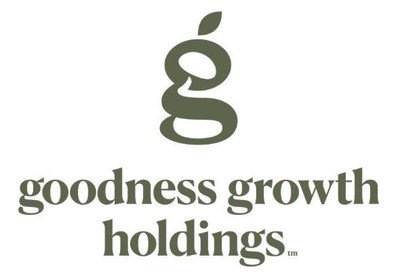Goodness Growth Holdings, Inc. ("Goodness Growth" or the "Company") (CSE: GDNS; OTCQX: GDNSF), a physician-led, science-focused cannabis company and IP incubator, today announced that its subsidiary, Resurgent Biosciences, Inc. ("Resurgent"), is actively recruiting 100 participants to take part in an anonymous online survey to research the varying effects of entheogen and psychedelic experiences for therapeutic, religious, or spiritual purposes. The research will help inform Resurgent on future developments including research and wellness applications designed to help promote more positive, long-lasting outcomes from psychedelic-based therapies.

Existing research into the therapeutic use of psychedelics has focused heavily on synthetic substances, such as LSD, Ketamine, and MDMA, performed in controlled clinical settings. The survey being conducted by Resurgent, which has received approval from an independent Institutional Review Board ("IRB") registered with the Office for Human Research Protections ("OHRP"), will instead focus on the naturalistic use of entheogens and other substances typically used in specific cultural and spiritual contexts for healing.
"Entheogens" refers to traditional substances, more commonly referred to as psychedelics, of fully natural origin and ingested to impact one's consciousness for therapeutic, religious, or spiritual purposes. This is an innovative, first-of-its-kind survey delving into some key questions surrounding entheogen usage.
"Lab-based research will always be an essential aspect of our research and development process. However, to create more effective psychedelic-based therapies and services, we believe it is equally important to thoroughly explore the tremendous wealth of experience and wisdom that already exists and is active today based on centuries of both spiritual and therapeutic practices," said Chief Medical Officer Stephen Dahmer , MD. "Learning from and respecting the rich history of psychedelic traditional practices as well as the extensive existing therapeutic use is an important first step to support a path for future therapies in the United States that afford long term safety and efficacy."
To conduct this research, Resurgent will be performing an observational pilot survey, collecting self-reported, anonymous data from 100 adults who self-report having participated in entheogen therapy centers and retreats during the last five years on topics including their initial intentions, motivations, experiences, demographics, and willingness to participate in future entheogen research.
By collecting information from psychedelic-related ceremonies and retreats across the world, and particularly in South America , Resurgent aims to gain a greater understanding of these experiences and their impact on participants to develop better approaches for psychedelic-focused therapy and counselling.
"As a science-focused company, research remains the first and most important step in the development of new therapeutic approaches and supportive solutions related to psychedelics," said Chairman and Chief Executive Officer, Kyle Kingsley , M.D. "As we work to further our understanding and acceptance of psychedelic-based therapies as beneficial, an IRB-approved research study will enable us to gather meaningful data to refine and focus our approach to development of products related to psychedelics therapy."
The research study is being conducted through a partnership with Flor da Jurema , a temple community in Brazil , where visitors can practice traditional forms of plant-based medicines and take part in spiritual experiences around the globe.
To learn more, please visit the study's page on the National Institute of Health's Clinical Trials Website .
To participate in this study, visit https://redcap.link/SERPNTS .
About Goodness Growth Holdings, Inc.
Goodness Growth Holdings, Inc., is a physician-led, science-focused holding company whose mission is to bring the power of plants to the world. The Company's operations consist primarily of its multi-state cannabis company subsidiary, Vireo Health, Inc., and its science and intellectual property incubator, Resurgent Biosciences, Inc. The Company manufactures proprietary, branded cannabis products in environmentally friendly facilities and state-of-the-art cultivation sites and distributes its products through its growing network of Green Goods ® and other retail locations and third-party dispensaries. Its team of more than 500 employees are focused on the development of differentiated products, driving scientific innovation of plant-based medicines, and developing meaningful intellectual property. Today, the Company is licensed to grow, process, and/or distribute cannabis in eight markets and operates 18 dispensaries across the United States . For more information about Goodness Growth Holdings, please visit www.goodnessgrowth.com .
| Contact Information | |
| | |
| Investor Inquiries: | Media Inquiries: |
| Sam Gibbons | Albe Zakes |
| Vice President, Investor Relations | Vice President, Corporate Communications |
| (612) 314-8995 | (267) 221-4800 |
![]() View original content: https://www.prnewswire.com/news-releases/goodness-growth-holdings-subsidiary-resurgent-biosciences-launches-first-irb-approved-research-study-on-entheogens--psychedelic-experiences-301376158.html
View original content: https://www.prnewswire.com/news-releases/goodness-growth-holdings-subsidiary-resurgent-biosciences-launches-first-irb-approved-research-study-on-entheogens--psychedelic-experiences-301376158.html
SOURCE Goodness Growth Holdings
